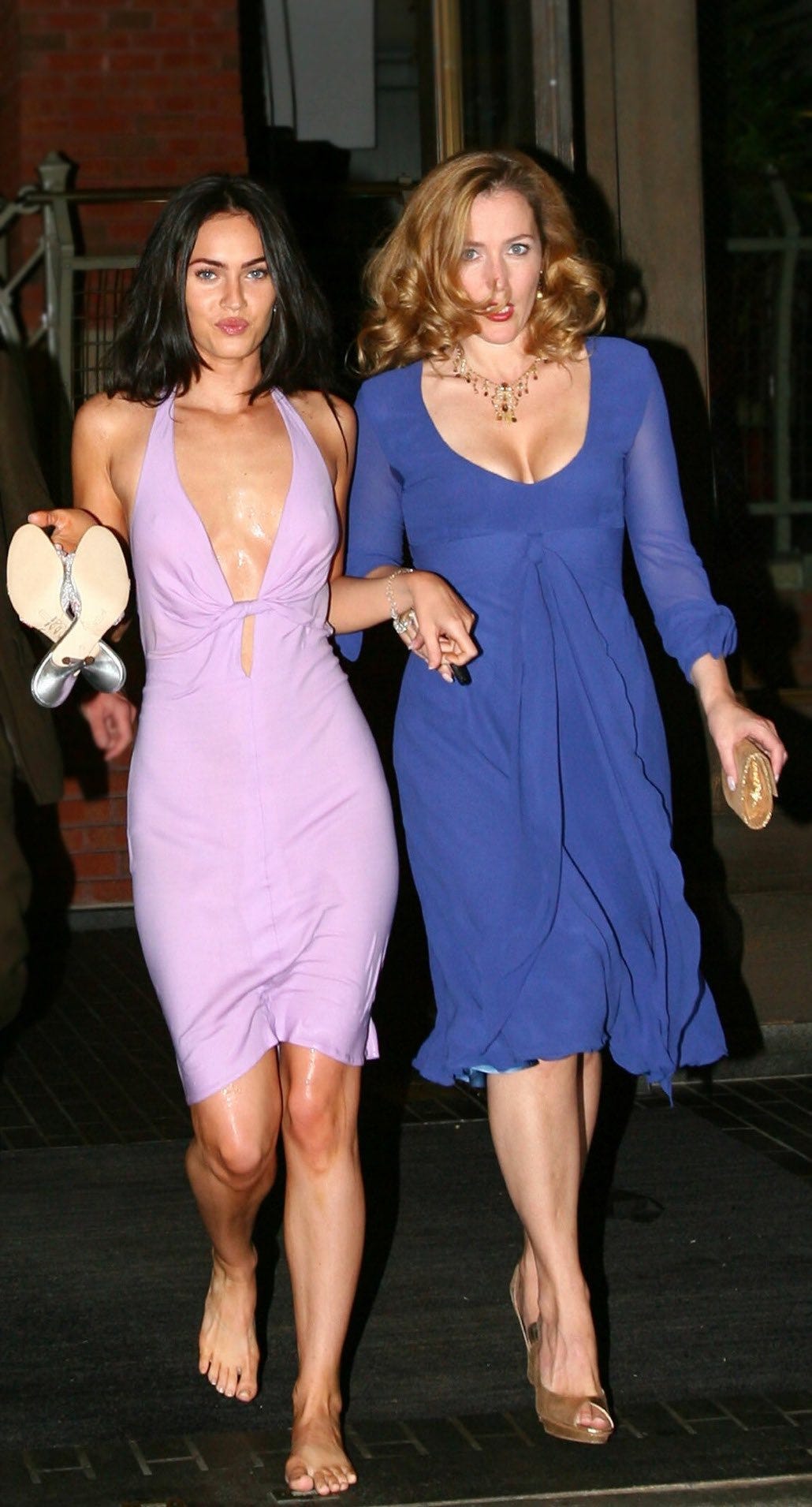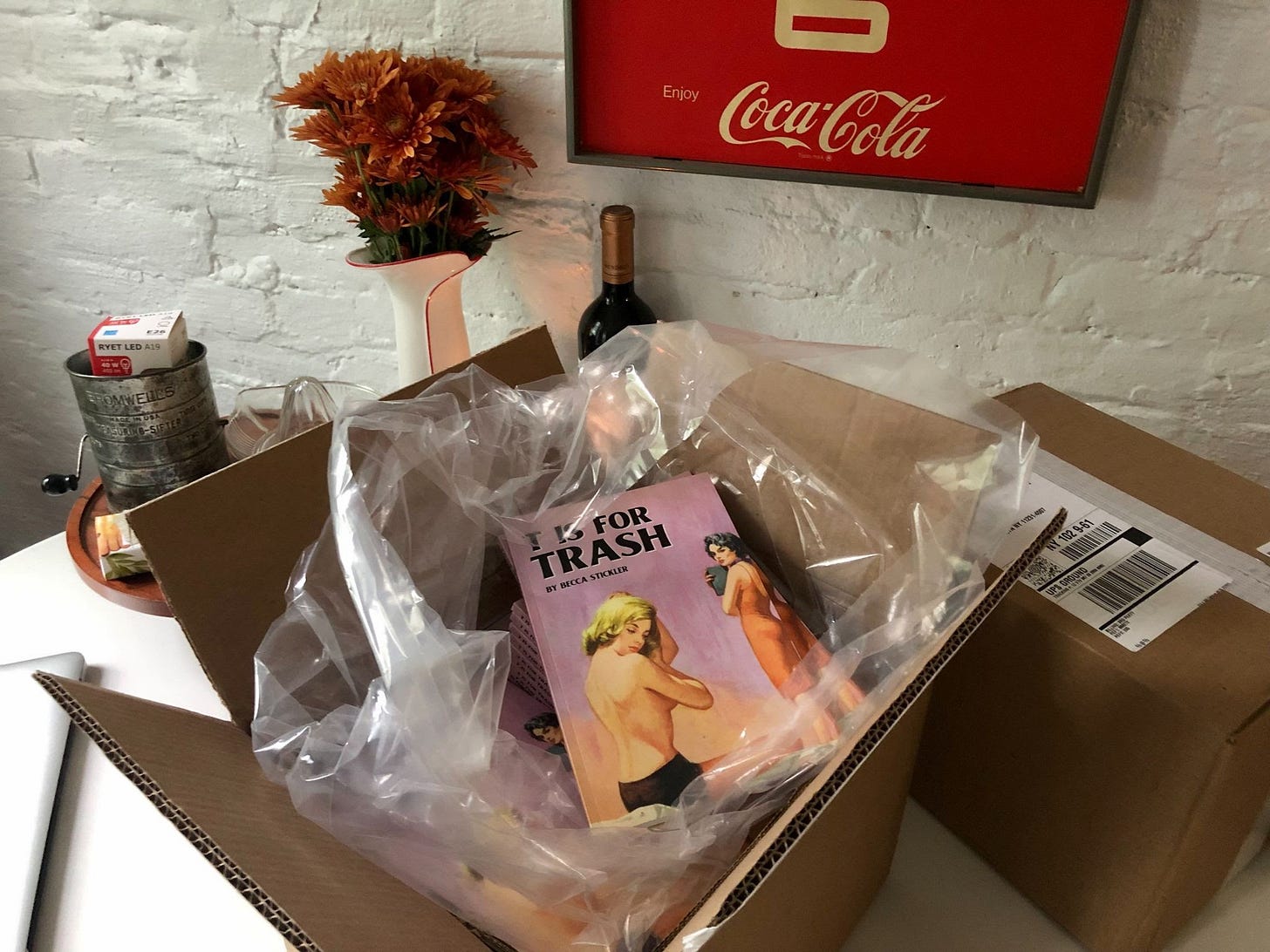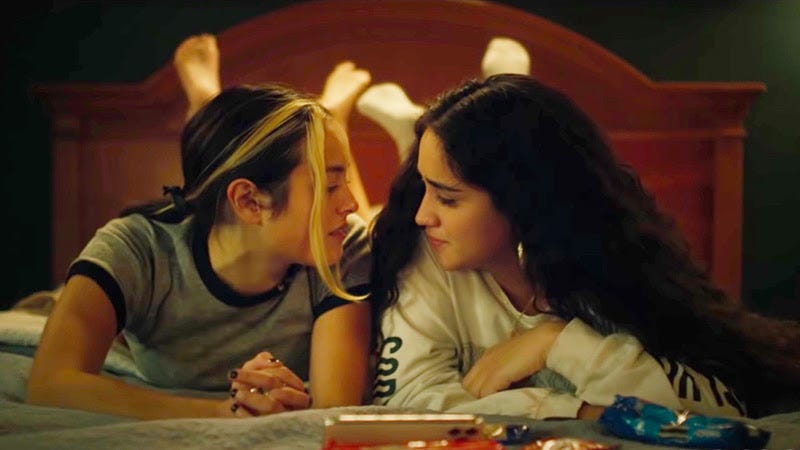#37: Generation
A TV-centric edition of RSQ. Plus, a zine update.
Hello and happy Bisexuality Day or something to those who celebrate.
This week’s newsletter is a special Watch Something Queer edition of RSQ, in which my girlfriend recommends the cancelled-before-its-time HBO Max show Generation.
But before we get to that, a quick update on zine stuff: the full run was just delivered!!
I’m planning to mail copies out to everyone who pre-ordered in the morning, so if that’s you, you can expect to see your zine within the next week.
If you haven’t ordered a copy yet, you can do that here. As long as you place your order by the end of the day, you’ll still get pre-order pricing (only ten bucks!), and your copy will go out tomorrow, too.
I’m also planning to do a delivery cruise around Brooklyn tomorrow evening (weather permitting), as a chunk of the orders come from within a few miles of my apartment and it seems more efficient to drop them off rather than putting them in the mail. If you’re in Brooklyn and already placed an order, you should’ve just received an email from me to arrange that. If you’re in Brooklyn and haven’t yet ordered a copy but would like to have one delivered tomorrow, just reply to this email and I’ll add you to the list.
Okay, that’s enough of that! Now, onto a passionate queer TV rec I hope you all take.
— Becca
Generation, reviewed by Alanna Browdy
TV Series, 2021-2021
I don’t read. Or rather, I barely read. So why am I a guest writer on my girlfriend’s queer book newsletter?
Well, I’m here to switch things up and write about a queer TV show. This amalgamation of my emotionally fragile thoughts is partly a review, but mostly a plea to watch and memorialize it as part of the queer television cannon. Because the show was cancelled last week after just one season, and the hearts of its loyal fanbase, including my own, were shattered.
Genera+ion (also referred to as simply Generation) has 16 episodes on HBO Max, which aired in two eight-episode installments in March and July of this year. It’s an ensemble show about Gen Z teens who are part of their high school’s GSA (a concept that's "so binary," according to fan fav Chester) and close friendships emerge as they navigate all of the shit that comes along with being a teenager.
It’s dramatic and funny with relatable storylines that tug at your heartstrings. There’s a lockdown, a catfish-ing, a coven, a birth in the mall bathroom, the most tender WLW ship (#griley #rileta #luoreno), a school trip captured through moments on the bus and in motel rooms, and characters who are unapologetically themselves. The show was conceived of by a bisexual Gen-Zer who often writes the episodes, and her authenticity is there. It also feels important to mention that every single actor is brilliant, and most of them are queer!!
I know what you’re thinking: Aren’t you… not a teen? Why are you writing about this? This newsletter is for queer books! Well, first of all, yes, I’m not a teen. I’m a 28-year-old urban planner. But I was a queer teenager at one point—and, more specifically, a queer teenager who watched a lot of TV.
And when I watched TV, I was always searching for people like me on screen. But if you also grew up in the 2000s, you know that queer women were typically limited to side plots about experimentation. And while we occasionally got a good storyline (e.g. Emily/Naomi in Skins, Brittany/Santana in Glee, Spencer/Ashley in South of Nowhere), there simply weren't enough.
So please allow me to take a moment for Riley and Greta (the aforementioned tender WLW ship, pictured below), because their story hit me like a gay bag of rocks. What looks at first like an unrequited situation turns into a slow burn romance where we watch these two take their time falling for each other. The painful moments of the relationship are tied to their inability to communicate rather than their struggle with attraction to the same sex (i.e., how could I ever love a girl!)—and I so, SO appreciated that.
Now back to my queer teendom, I attribute my ability to come out at 16 to marching band—a hotbed of gay activity. My formative teen years were spent surrounded by others like me, and I didn’t necessarily need a TV screen to feel represented and part of something. But I was lucky, and I know that others were (and are) not. Without a supportive environment, where we’re not othered, queer people struggle to connect, and some of us can only find connection on screen.
This is part of why Generation has such dedicated fans. They found connection through this show that is deeply queer, made by and for queer people. While it was on air, fans were extremely active on Twitter and Instagram, responding to each other’s thoughts and questions while coordinating watch parties and group texts. And now that it’s been cancelled, they’re working infinitely harder than HBO Max ever did to keep the show going, DMing and tweeting at other networks in the hopes that they’ll pick it up and #savegeneration. (Sign the petition!!!)
If you click that tag (or search it on Instagram), you’ll see that fans care immensely about the show and its characters. You’ll see them posting about how much of a comfort Generation has been to them, and how much more secure they feel in their sexuality and identity after watching it. You’ll see them talking to each other and interacting with the show’s cast and creators, who are also active in the conversation. You’ll see that the fanbase is made up of teenage and not-teenage viewers, queer and straight, labeled and unlabeled—and that all of them saw something in the show they hadn't seen anywhere else.
The cancellation of the show just proves how far we have left to go in terms of queer on-screen representation. Sure, Generation was given the greenlight, but HBO hardly gave it a chance to succeed. The network barely advertised the show at all (had you even heard of it before reading this review??), and was then disappointed by the resulting viewership numbers. Meanwhile, HBO invested substantial advertising dollars into positioning the new Gossip Girl as a queer show, even though it has one (bad) queer storyline. And they renewed it after just one episode had aired even though the general and critical consensus is that the show is awful.
Despite its short run, Generation made an impact on a lot of people. Watching it, I imagined what it would’ve felt like to be more confident in my queerness at a younger age. I was reminded of what it felt like to fall in love for the first time and hold a girl’s hand on the bus. I remembered what it felt like to be unable to communicate my feelings, and how it felt to realize that some adults in my life didn't understand, while others really did. It was a simultaneous walk down memory lane and a transportation into queer youth utopia.
Admittedly, maybe I’m too old to be this obsessed with it. But I am so thankful to have had a show that lays out an incredibly real and tangible blueprint of queer joy, and I’m stoked for the queer teens who get to see that joy play out on screen.
I’m also hopeful that maybe—just maybe!—one day a show like this will get a chance to really thrive, with the network support it takes to get more than one season. But in the meantime, may Generation live forever, through its characters, its stories, its music, and the lives of its forever-changed fans.
Please watch Generation.





